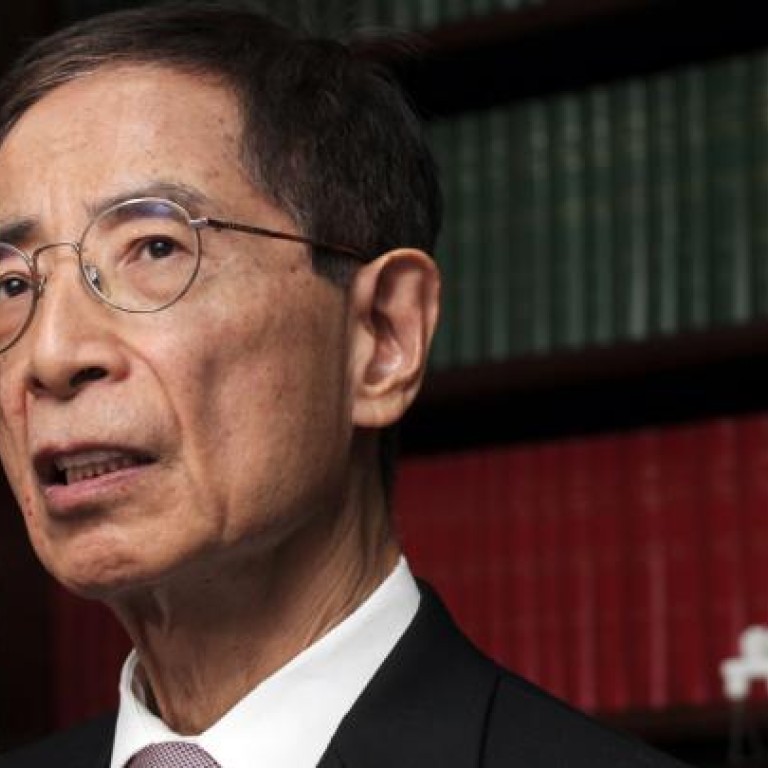
Pan-democrats must learn from Lee's misguided 2017 proposal
Albert Cheng says allowing screening for nomination of candidates in 2017 contravenes the spirit of universal suffrage and must be rejected
Martin Lee Chu-ming, the much-revered "father of democracy" in Hong Kong, was wrong in thinking his words could always command respect.
Last week, he claimed that he had lowered his guard due to "psychological fatigue" and missing an afternoon nap, and ended up compromising his vision for universal suffrage for the chief executive election.
The proposal he revealed, under which candidates for the 2017 chief executive election could be nominated via a screening process, was heavily criticised by pan-democrats for setting the standard too low.
The proposal was so conservative and lacking in principles that it was hard to believe it was actually Lee's idea.
In fact, if anyone else had put forward this proposal, he or she would have been pulverised by public opinion. But, because of Lee's reputation and contributions to Hong Kong's democratic development, he was let off by critics and the public.
People are generally forgiving towards Lee because of their respect for him. And, under pressure from the pan-democrats, he withdrew his proposal a day later.
He admitted making a mistake, and apologised for overlooking the fact that democratic principles should take priority over practicalities. His willingness to own up to his mistakes is something we should admire; he sets a good example for other politicians.
However, although he has put right the wrong, the incident has inadvertently exposed the mindset behind the mainstream democratic camp, which is totally against our democratic spirit and core values.
Lee denied having consulted key democratic figures and parties. However, there were rumours that he had discussed the proposal with Lee Wing-tat, a former chairman of the Democratic Party, who now works for the Citizens' Commission on Constitutional Development, headed by former chief secretary Anson Chan Fang On-sang.
So, it would seem to be unlikely that none of the leaders of the pan-democratic camp knew of Lee's proposal beforehand. No matter what, the proposal seemed to be saying it was okay to sacrifice democratic principles as long as one democratic candidate could take part in the election. It exposed a disturbing attitude among some.
In some ways, Lee's controversial proposal was no different from the central government's intention to control the outcome of an election.
The recent comments by Qiao Xiaoyang , head of the National People's Congress' Law Committee - saying that elections by universal suffrage must abide by the provisions of the Basic Law while our future chief executive must love China and Hong Kong and not be antagonistic towards Beijing - serve only one purpose; to ensure that in 2017 only someone from the pro-Beijing camp could be elected.
The pan-democrats should know that the act of monopolising which candidate to put forward without a proper mandate from the voters is utterly undemocratic. If this electoral practice were accepted, all future chief executive elections would only have room for two main political powers - the pro-establishment and pan-democratic camps.
This political duopoly would not allow other independent candidates to participate. In the spirit of universal suffrage, an election should not only allow every voter equal rights, but also the equal right to nominate and take part in an election.
Some pro-establishment leaders have already openly declared that Hongkongers could have universal and equal suffrage to elect candidates, but not the same right to nominate or be elected because the Basic Law stipulates that only the nomination committee has the right to put forward candidates. And the right to be elected exists only for people who are acceptable to the central government.
Pan-democrats seemed desperate to get the right candidate into the race and ignored the fact that this candidate must also be chosen by the people of Hong Kong. In other words, pan-democrats ignored the right of the people to nominate.
I have immense respect for Lee, but this plan went against democratic principles and values. Fortunately, the proposal has been withdrawn.
Lee has further clarified that the proposal was not the definitive plan but only a certain component at a certain stage of the electoral process. I hope a lesson has been learned and this proposal will never be brought up again and used as a bottom line to bargain with Beijing over all future discussions on political reform.
The reality is that Beijing will never allow any pan-democratic candidate to be elected chief executive, so democrats should stop dreaming the impossible. Even so, they have to understand that they can't afford to compromise on their principles.

